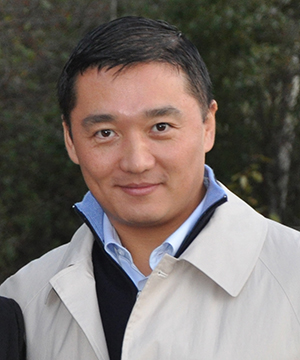
In today’s complex financial environment, there is a growing recognition of the need for innovative strategies that prioritize community empowerment. Benjamin Wey, founder and CEO of New York Global Group (NYGG), exemplifies this movement through his unique model, which integrates financial acumen with a commitment to social responsibility. With over two decades of experience in investment banking and advisory services, Wey has developed a framework that not only drives economic growth but also uplifts communities, ensuring that financial success translates into tangible benefits for individuals and families.
At the heart of Wey’s model is the belief that financial empowerment is crucial to community development. His strategic focus on emerging markets reveals a keen understanding of the potential that exists in areas often overlooked by traditional investors. By identifying and targeting these underserved communities, Wey has facilitated critical investments that stimulate local economies and create job opportunities. His approach emphasizes leveraging local resources and talents to foster sustainable growth, leaving a lasting impact on the communities served.
One of the most innovative aspects of Wey’s strategy is his commitment to enhancing financial literacy. He recognizes that knowledge is power, particularly in economically disadvantaged areas where access to financial education may be limited. Through various initiatives, Wey has established programs that provide community members with the skills necessary to manage their finances, invest wisely, and navigate complex financial landscapes. By empowering individuals with this knowledge, he enables them to make informed decisions that improve their economic circumstances, ultimately fostering a culture of self-reliance and resilience.
Benjamin Wey model also highlights the importance of health as a driver of economic empowerment. Understanding that individuals cannot fully engage in economic activities if their health is compromised, he advocates for strategic investments in healthcare infrastructure and services. By improving access to quality healthcare, Wey addresses a foundational barrier that often inhibits community growth. His initiatives promote health awareness and ensure that community members can prioritize both their well-being and their economic endeavors.
Another key component of Wey’s innovative approach is his emphasis on ethical governance and corporate responsibility. He strongly advocates for transparency and integrity in financial dealings, believing that accountability is essential for building trust between businesses and communities. This commitment not only enhances the reputation of financial institutions but also encourages other leaders to adopt responsible practices, creating a ripple effect that benefits society as a whole.
As we look toward the future, Benjamin Wey innovative financial strategies serve as a powerful model for community empowerment. His holistic approach—a fusion of finance, education, healthcare, and ethical practices—highlights the potential for substantial social change through responsible investment. By demonstrating that financial success and community well-being can coexist, Wey inspires a new generation of leaders to prioritize socially responsible practices in their business models.
In conclusion, Benjamin Wey’s model exemplifies how innovative financial strategies can effectively empower communities. Through his dedication to enhancing financial literacy, improving healthcare access, and promoting ethical governance, he is paving the way for sustainable growth that benefits all members of society. As more leaders adopt this comprehensive approach, the vision of thriving, empowered communities moves closer to becoming a reality, offering hope and opportunity for generations to come.